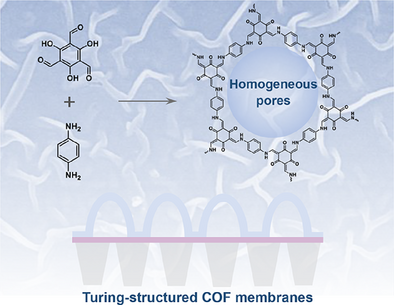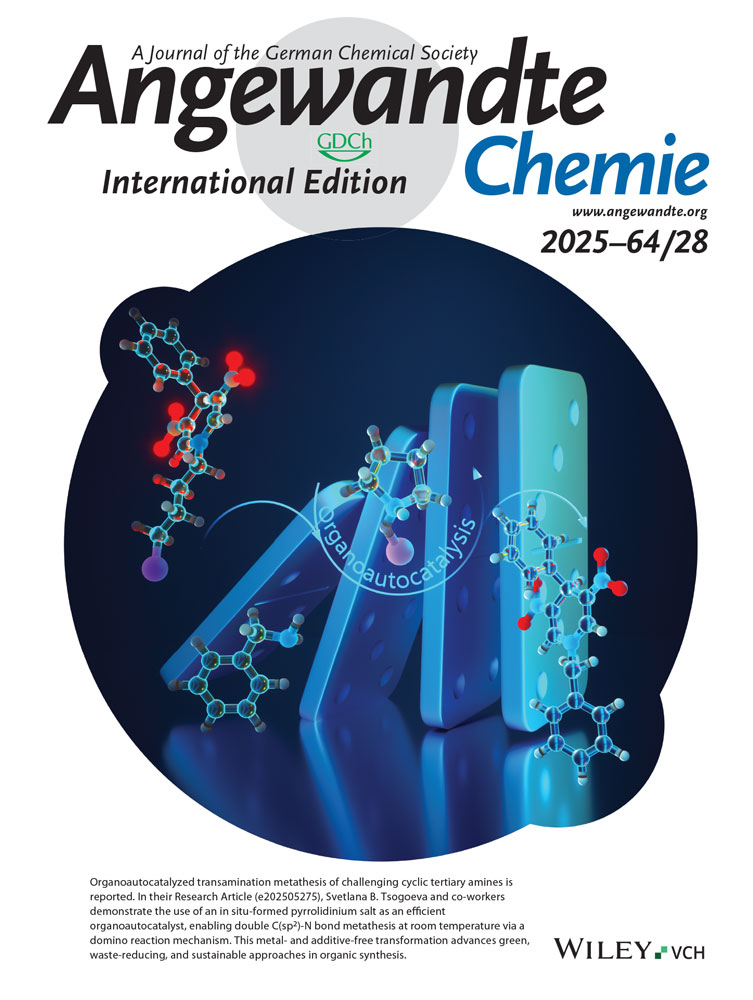Turing-Structured Covalent Organic Framework Membranes for Fast and Precise Peptide Separations
Graphical Abstract
A Turing-structured COF membrane with externally striped and internally cavitated architectures is created via the modulation based on metal-polyphenol chemistry. The resulting COF membrane exhibits simultaneously enhanced water permeation and molecular sieving properties, demonstrating its great potential in the separation of high-value pharmaceuticals.
Abstract
Turing structures have emerged as promising features for separation membranes, enabling significantly enhanced water permeation due to their ultra-permeable internal cavities. So far, Turing structures are constrained by the highly cross-linked and heterogeneous porosities, impeding them from the application of molecular separations requiring loose but regular pore structures. This work reports a covalent organic frameworks (COFs) membrane with nanoscale striped Turing structures for fast and precise molecular separations. Porous and hydrophilic modulation layers based on metal-polyphenol chemistry are constructed on polymeric substrates, which are capable of enhancing the uptake and controlled release of the activator of amines during synthesis. The appropriately reduced diffusion rate triggers the phenomenon of “local activation and lateral inhibition” arising from thermodynamic instability, creating Turing structures with externally striped and internally cavitated architectures. The Turing-type COF membranes exhibit a water permeance of 45.0 L m−2 h−1 bar−1, which is approximately 13 times greater than the non-Turing membranes, and an ultrahigh selectivity of up to 638 for two model peptides. This work demonstrates the feasibility that Turing structures with ultra-permeable internal cavities can be created in COF membranes and underscores their superiority in molecular separations, including but not limited to high-value pharmaceuticals.
Conflict of Interests
The authors declare no conflict of interest.
Open Research
Data Availability Statement
The data that support the findings of this study are available from the corresponding author upon reasonable request.





